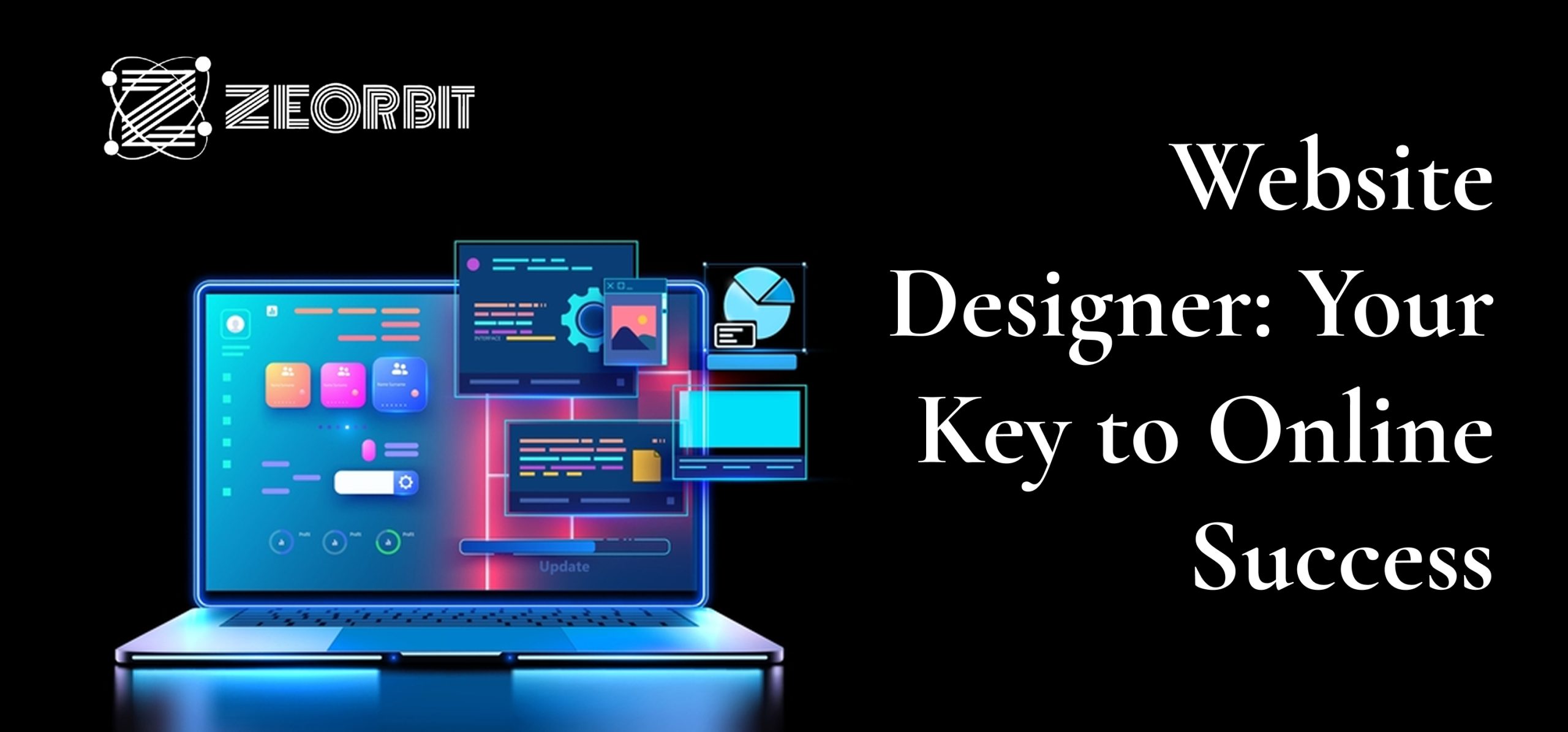Website Designer: Your Key to Online Success
Website Designer: Your Key to Unlocking Online Success in 2025
Is your website a silent salesperson or a digital ghost town? In 2025, a compelling online presence is no longer optional – it’s a prerequisite for survival. Ditch the DIY templates and outdated designs. Your business needs a professional website designer.
Why Investing in a Website Designer is Crucial in 2025
The digital landscape is evolving at warp speed, demanding constant adaptation. In 2025, expect even more reliance on mobile devices, AI-powered search, and user experiences that prioritize speed and personalization. A professional website designer ensures your site isn’t just online, but optimized for these critical trends.
- Mobile-First is Non-Negotiable: Forget desktops. Smartphones are king. Your website must be flawlessly responsive and optimized for mobile viewing.
- User Experience (UX) is Paramount: Confusing navigation? Slow loading times? Expect users to bounce faster than ever. Intuitive UX design is the key to keeping visitors engaged.
- AI is Watching (and Ranking): Search engine algorithms are increasingly sophisticated, leveraging AI to assess website quality and relevance. A well-designed site adheres to best practices, pleasing both users and AI algorithms.
- Zero-Click Search Results: More searches are ending without a click to a website. This demands crafting compelling meta descriptions and optimizing for featured snippets to capture attention within the search results page.
The Impact of Poor Website Design
A subpar website is more than just an aesthetic issue. It directly impacts your bottom line.
- Lost Leads: Confusing navigation and outdated designs drive potential customers away.
- Damaged Credibility: A poorly designed website projects an image of unprofessionalism and untrustworthiness.
- Lower Search Engine Rankings: Google penalizes websites with poor UX and slow loading times, burying them in the search results.
- Missed Revenue Opportunities: A poorly optimized e-commerce site will struggle to convert visitors into paying customers.
How a Professional Website Designer Can Help
A skilled website designer brings more to the table than just aesthetic flair. They possess a diverse skillset crucial for online success.
- Strategic Planning: Understanding your target audience, business goals, and competition to create a website that achieves specific objectives.
- User Experience (UX) Design: Crafting intuitive navigation, engaging content, and seamless user flows.
- Visual Design: Creating a visually appealing and brand-consistent design that resonates with your target audience.
- Technical Expertise: Expertise in coding, website optimization, and security best practices.
- SEO Optimization: Implementing strategies to improve your website’s visibility in search engine results.
- Content Integration: Seamlessly integrating compelling content that informs, engages, and converts visitors.
Website Design Trends to Watch in 2025
Staying ahead of the curve requires awareness of emerging design trends. Here are a few key trends to watch for in 2025:
- AI-Powered Personalization: Expect websites to leverage AI to tailor content and experiences to individual users based on their behavior and preferences.
- Immersive Experiences: VR and AR technologies will play a greater role in website design, creating more engaging and interactive experiences.
- Sustainable Design: Eco-friendly design principles, such as reducing website bloat and optimizing for energy efficiency, will become increasingly important.
- Micro-Interactions: Subtle animations and feedback mechanisms that enhance user engagement and provide real-time feedback.
- Bold Typography and Asymmetry: Moving away from rigid grid layouts towards more dynamic and visually striking designs.
Website Designers: Essential Skills for 2025
In 2025, a successful website designer must possess a specific blend of technical and creative skills.
- Proficiency in Design Software: Expertise in tools like Adobe Creative Suite (Photoshop, Illustrator, XD) and Figma.
- Coding Skills: A solid understanding of HTML, CSS, and JavaScript is crucial for implementing designs and creating interactive elements.
- UX/UI Design Principles: A deep understanding of user-centered design principles and usability testing.
- SEO Knowledge: Understanding how search engines work and implementing SEO best practices.
- Content Strategy: The ability to create compelling and SEO-friendly content.
- Data Analytics: Analyzing website data to identify areas for improvement and optimize performance.
- AI Integration: Understanding how to leverage AI tools and technologies to enhance website functionality and personalization.
- Accessibility: Designing websites that are accessible to users with disabilities, adhering to WCAG guidelines.
☏ 619-724-9517 | ✉️ info@zeorbit.com
Is your website ready to take your business to the next level? Let’s discuss how a professional website designer can help you achieve your goals.
Choosing the Right Website Designer: A Step-by-Step Guide
Selecting the right website designer is a crucial decision that can significantly impact your online success. Here’s a step-by-step guide to help you make the right choice:
- Define Your Goals: Clearly define your business goals and objectives for your website.
- Set a Budget: Determine how much you’re willing to invest in website design and development.
- Research Potential Designers: Search for website designers online, read reviews, and ask for recommendations.
- Review Portfolios: Examine the designer’s portfolio to assess their design style, experience, and expertise.
- Check References: Contact previous clients to gather feedback on the designer’s professionalism, communication, and quality of work.
- Schedule Consultations: Meet with potential designers to discuss your project requirements, budget, and timeline.
- Evaluate Communication Skills: Choose a designer who communicates clearly, responds promptly, and understands your needs.
- Review Proposals: Compare proposals from different designers, paying attention to scope of work, pricing, and timeline.
- Negotiate Terms: Negotiate the terms of the agreement, including payment schedule, milestones, and ownership of intellectual property.
- Sign a Contract: Formalize the agreement with a written contract that outlines the scope of work, timeline, and payment terms.
By embracing these strategies and working with a talented website designer, you can ensure your online presence thrives in the competitive digital landscape of 2025.


